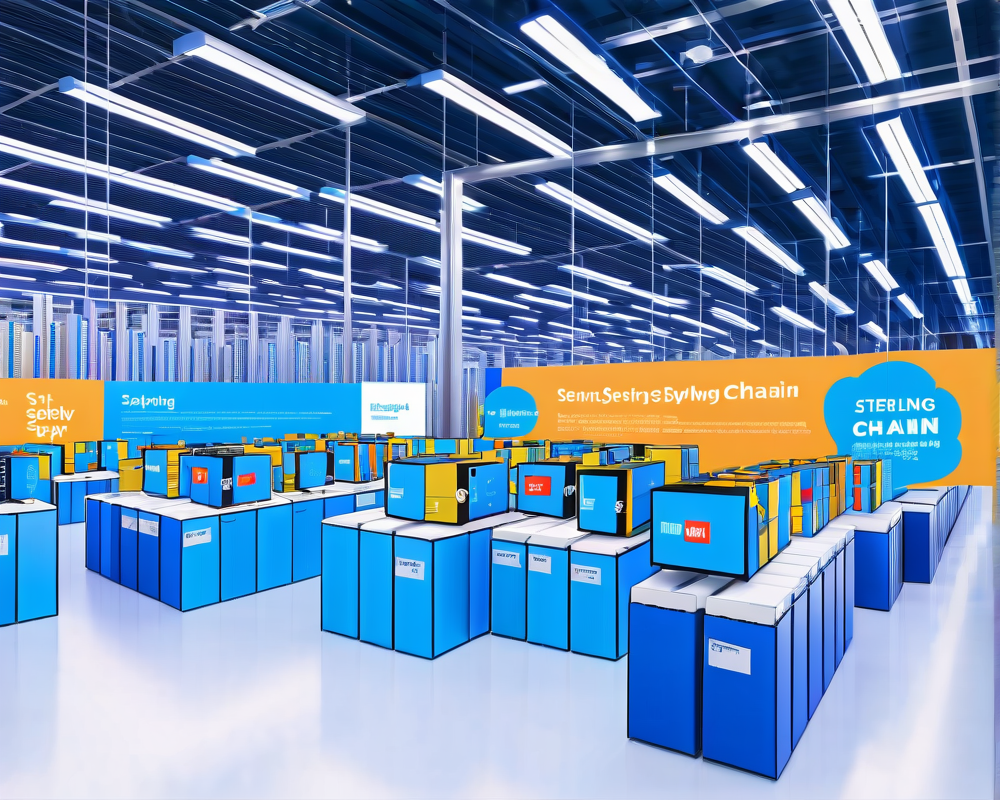IBM Unleashes Sterling Supply Chain Suite: Revolutionizing Data Integration with AI and Blockchain
Introduction to Sterling Supply Chain Suite
IBM has officially entered the supply chain arena with its latest offering, the Sterling Supply Chain Suite, which made waves in the tech community on October 8. This integrated solution is powered by IBM’s advanced technologies, including the infamous Watson AI and the innovative IBM Blockchain. Whether you’re a manufacturer, retailer, or simply a curious onlooker, this product aims to bridge gaps in data integration across the supply chain network.
Hybrid-Cloud Integration: A Game Changer
Imagine a world where data flows seamlessly between various players in the supply chain. That’s the promise of the Sterling Supply Chain Suite. The hybrid-cloud support allows for enhanced data integration among manufacturers, retailers, and other stakeholders.
It’s like setting up a computerized potluck dinner where everyone brings their data dish, and IBM’s suite ensures that everything blends together without a hitch. Greater reliability, transparency, and security are the sweet icing on this already enticing cake.
Flexibility Meets Business Needs
One of the standout features of the Sterling Supply Chain Suite is its flexibility. Film roles have shown us that every great plot twist is only possible if the script allows it. Similarly, IBM has equipped businesses with the means to update and enhance their supply chain according to evolving needs. The suite allows for adjustments to be made in real-time, enabling businesses to respond faster to market demands and changes.
Red Hat Acquisition: Strengthening the Backbone
In case you missed the news, IBM’s acquisition of Red Hat back in 2019 for a jaw-dropping $34 billion has diversified its offerings, and it’s paying off. The Sterling Supply Chain Suite is a shining example of this! With open-architecture capabilities, clients are given the freedom to deploy their workloads based on their preference — be it in their data centers or the expansive cloud.
To illustrate, once certified, IBM’s Sterling Order Management containers can easily transition into Red Hat OpenShift, allowing clients to run their software wherever they see fit. It’s about giving control back to the clients and letting them call the shots in a world usually dictated by technology.
IBM’s Blockchain Revolution
IBM isn’t just another player in the blockchain game; it’s one of the heavyweights. Recently, the company teamed up with global coffee companies to unveil a blockchain platform specific to the coffee supply chain, aiming for a launch by early 2020. If that’s not a caffeine-infused leap into the future, I don’t know what is!
Additionally, Thailand’s Customs Department has opted to use IBM’s Tradelens blockchain solution to enhance shipping accuracy in Thai ports. With projects like these, it’s clear that IBM is serious about securing and streamlining supply chains using cutting-edge technology.
Conclusion: The Future Looks Bright
The launch of IBM’s Sterling Supply Chain Suite marks a significant leap toward a more agile, transparent, and responsive supply chain industry. With the powerful blend of AI, blockchain, and the flexibility from Red Hat, businesses can now tackle challenges head-on, leveraging data to drive decisions. Who knew that supply chains could become the cool kids on the tech block?




